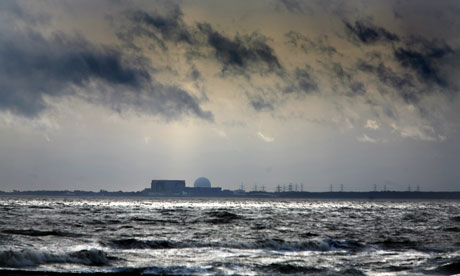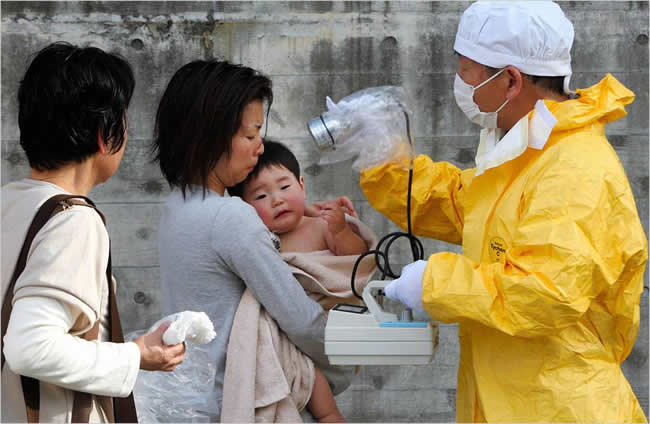Dear All,
Congratulations!!!!!
Below is the translation of an article from today's Handelsblatt (Germany's most important economic daily). Please let me know if you are still planning to come to the RWE and E.ON annual meetings.
Anyway, do let me know what your plans are.
All the best!
Heffa
No new nuclear plants – RWE and Eon drop nuclear plans in Great Britain
E.ON and RWE are giving up their plans to build new nuclear power plants in Great Britain. Statements from company circles to the "Handelsblatt" confirmed this information. The energy companies had planned investments running into the billions.
Düsseldorf/London: The energy companies RWE and E.ON have closed the file on their billion dollar plans for building new nuclear plants in Great Britain. On Thursday, RWE announced its intention to exit the Horizon Joint Venture. „Parallel to this, E.ON also announced its exit“, according to reports. Amongst other things, the high costs were said to be a reason for the abandonment. „Now it´s our aim to find a buyer for Horizon Nuclear Power.“ The utilities' original idea was build several reactors in Great Britain, for which they had planned investments worth tens of billions. Both companies refused to provide an official statement on their change of plans.
Following the notification, the shares of E.ON und RWE continued to make losses. For the two biggest German energy providers Great Britain is one of the most important foreign markets. E.ON and RWE had founded the Horizon Joint Venture a few years ago in order to build new nuclear plants with a total output of 6000 MW by 2025. Over the past few years, E.ON and RWE had claimed that "this programme will cost around 18 billions Euro“.
Doubts about the project had been increasing. Uncertain political and economic conditions, significantly rising costs and building delays in the construction of nuclear plants in France and Finland as well as low electricity prices depressed the overall mood.
„These conditions definitely do not motivate to take on these risks“, E.ON board member Klaus-Dieter Maubach said recently. „It´s just not possible to build a nuclear power plant when electricity costs are at 60 Euro per MW“ Peter Terium, chef of RWE, had explained earlier. Terium has set the bar high.
*********************************************
UNABHۀNGIGE ARBEIT BRAUCHT UNABHۀNGIGES GELD!
Bitte unterstüŸtzen Sie unsere Arbeit durch eine Spende
GLS Bank / Konto 4035 295 900 / BLZ 430 609 67
urgewald e.V. ist als gemeinnüŸtzig und besonders fšörderungswŸrdig anerkannt.
*****************************************************
Heffa SchüŸcking
Urgewald e.V.
Von-Galen-Straße 4
D-48336 Sassenberg
Tel. +49-2583-1031
+49-2583-9189937 (direkt)
Fax +49-2583-4220
Mobil +49-160-96761436
http://www.urgewald.de
*****************************************************

Sizewell nuclear power plant, seen from across the sea at Southwold, Suffolk. Unpublished government analysis shows sites are at risk from flooding due to climate change. Photograph: Graham Turner for the Guardian
As many as 12 of Britain's 19 civil nuclear sites are at risk of flooding and coastal erosion because of climate change, according to an unpublished government analysis obtained by the Guardian.
Nine of the sites have been assessed by the Department for Environment, Food and Rural Affairs (Defra) as being vulnerable now, while others are in danger from rising sea levels and storms in the future.
The sites include all of the eight proposed for new nuclear power stations around the coast, as well as numerous radioactive waste stores, operating reactors and defunct nuclear facilities. Two of the sites for the new stations – Sizewell in Suffolk and Hartlepool in County Durham, where there are also operating reactors – are said to have a current high risk of flooding. Closed and running reactors at Dungeness, Kent, are also classed as currently at high risk.
Another of the sites at risk is Hinkley Point in Somerset, where the first of the new nuclear stations is planned and where there are reactors in operation and being decommissioned.
According to Defra, Hinkley Point already has a low risk of flooding, and by the 2080s will face a high risk of both flooding and erosion.
Other new reactor sites that face some risk now and high risk by the 2080s are Oldbury in Gloucestershire and Bradwell, Essex.
The huge old nuclear complex at Sellafield, Cumbria, is said to face a medium risk of flooding now and later.
The analysis was conducted by officials from Defra's floods and coastal erosion team as part of a major investigation into the impact of climate change on the UK. But when the results were published in January only summary numbers for the 2080s were mentioned and no individual sites were named.
Defra has now, however, released its full analysis in response to a request under freedom of information legislation. As a result, the department's assessments of the risks for individual sites can be disclosed for the first time.
Many of the sites date back to the 1950s and 1960s, and are unlikely to be fully decommissioned for many decades. Seven of those containing radioactive waste stores are judged to be at some risk of flooding now, with a further three at risk of erosion by the 2080s.
Experts suggested the main concern was of inundation causing nuclear waste leaks.
"Sea level rise, especially in the south-east of England, will mean some of these sites will be under water within 100 years," said David Crichton, a flood specialist and honorary professor at the hazard research centre at University College London. "This will make decommissioning expensive and difficult, not to mention the recovery and movement of nuclear waste to higher ground."
The French nuclear company EDF Energy was confident that all its nuclear sites in Britain were adequately protected against storms and floods. "Without these arrangements in place the regulator would have the authority to close us down," said an EDF spokeswoman.
Reports by the government's Office for Nuclear Regulation since the Fukushima nuclear accident a year ago had confirmed the "fundamental safety" of Britain's nuclear plants, the spokeswoman said. "Protection from flooding has also been factored into our new-build plans and will be covered by a robust regulatory regime, should consent be granted."
The Nuclear Decommissioning Authority, the government body responsible for dismantling old nuclear plants, said flood risk at every site was reviewed at least every 10 years.
New climate change hazards were likely to emerge slowly giving "time to develop and implement credible solutions", said an NDA spokesman.
He continued: "Existing power stations are designed with flood protection measures to protect against a one-in-10,000-year flood event and planning requirements state that new nuclear plants are also designed to take account of climate change impacts."
But Greenpeace accused the government and nuclear industry of covering up the real extent of flood and erosion risk. "It makes you wonder what other important information about the safety of our nuclear plants the government and EDF might be hiding," said the group's chief scientist, Doug Parr.
A Defra spokesperson said: "As the nuclear regulator has said the UK's nuclear sites are fundamentally safe with protection against current and future flood risk built in. The Climate Change Risk Assessment analyses possible outcomes by 2080 if no actions were taken to protect against the effects of climate change. This is clearly not the case - nuclear operators are already well aware of the risk of flooding, now and in the future, and are taking the action necessary to protect sites."
Nine of the sites have been assessed by the Department for Environment, Food and Rural Affairs (Defra) as being vulnerable now, while others are in danger from rising sea levels and storms in the future.
The sites include all of the eight proposed for new nuclear power stations around the coast, as well as numerous radioactive waste stores, operating reactors and defunct nuclear facilities. Two of the sites for the new stations – Sizewell in Suffolk and Hartlepool in County Durham, where there are also operating reactors – are said to have a current high risk of flooding. Closed and running reactors at Dungeness, Kent, are also classed as currently at high risk.
Another of the sites at risk is Hinkley Point in Somerset, where the first of the new nuclear stations is planned and where there are reactors in operation and being decommissioned.
According to Defra, Hinkley Point already has a low risk of flooding, and by the 2080s will face a high risk of both flooding and erosion.
Other new reactor sites that face some risk now and high risk by the 2080s are Oldbury in Gloucestershire and Bradwell, Essex.
The huge old nuclear complex at Sellafield, Cumbria, is said to face a medium risk of flooding now and later.
The analysis was conducted by officials from Defra's floods and coastal erosion team as part of a major investigation into the impact of climate change on the UK. But when the results were published in January only summary numbers for the 2080s were mentioned and no individual sites were named.
Defra has now, however, released its full analysis in response to a request under freedom of information legislation. As a result, the department's assessments of the risks for individual sites can be disclosed for the first time.
Many of the sites date back to the 1950s and 1960s, and are unlikely to be fully decommissioned for many decades. Seven of those containing radioactive waste stores are judged to be at some risk of flooding now, with a further three at risk of erosion by the 2080s.
Experts suggested the main concern was of inundation causing nuclear waste leaks.
"Sea level rise, especially in the south-east of England, will mean some of these sites will be under water within 100 years," said David Crichton, a flood specialist and honorary professor at the hazard research centre at University College London. "This will make decommissioning expensive and difficult, not to mention the recovery and movement of nuclear waste to higher ground."
The French nuclear company EDF Energy was confident that all its nuclear sites in Britain were adequately protected against storms and floods. "Without these arrangements in place the regulator would have the authority to close us down," said an EDF spokeswoman.
Reports by the government's Office for Nuclear Regulation since the Fukushima nuclear accident a year ago had confirmed the "fundamental safety" of Britain's nuclear plants, the spokeswoman said. "Protection from flooding has also been factored into our new-build plans and will be covered by a robust regulatory regime, should consent be granted."
The Nuclear Decommissioning Authority, the government body responsible for dismantling old nuclear plants, said flood risk at every site was reviewed at least every 10 years.
New climate change hazards were likely to emerge slowly giving "time to develop and implement credible solutions", said an NDA spokesman.
He continued: "Existing power stations are designed with flood protection measures to protect against a one-in-10,000-year flood event and planning requirements state that new nuclear plants are also designed to take account of climate change impacts."
But Greenpeace accused the government and nuclear industry of covering up the real extent of flood and erosion risk. "It makes you wonder what other important information about the safety of our nuclear plants the government and EDF might be hiding," said the group's chief scientist, Doug Parr.
A Defra spokesperson said: "As the nuclear regulator has said the UK's nuclear sites are fundamentally safe with protection against current and future flood risk built in. The Climate Change Risk Assessment analyses possible outcomes by 2080 if no actions were taken to protect against the effects of climate change. This is clearly not the case - nuclear operators are already well aware of the risk of flooding, now and in the future, and are taking the action necessary to protect sites."




